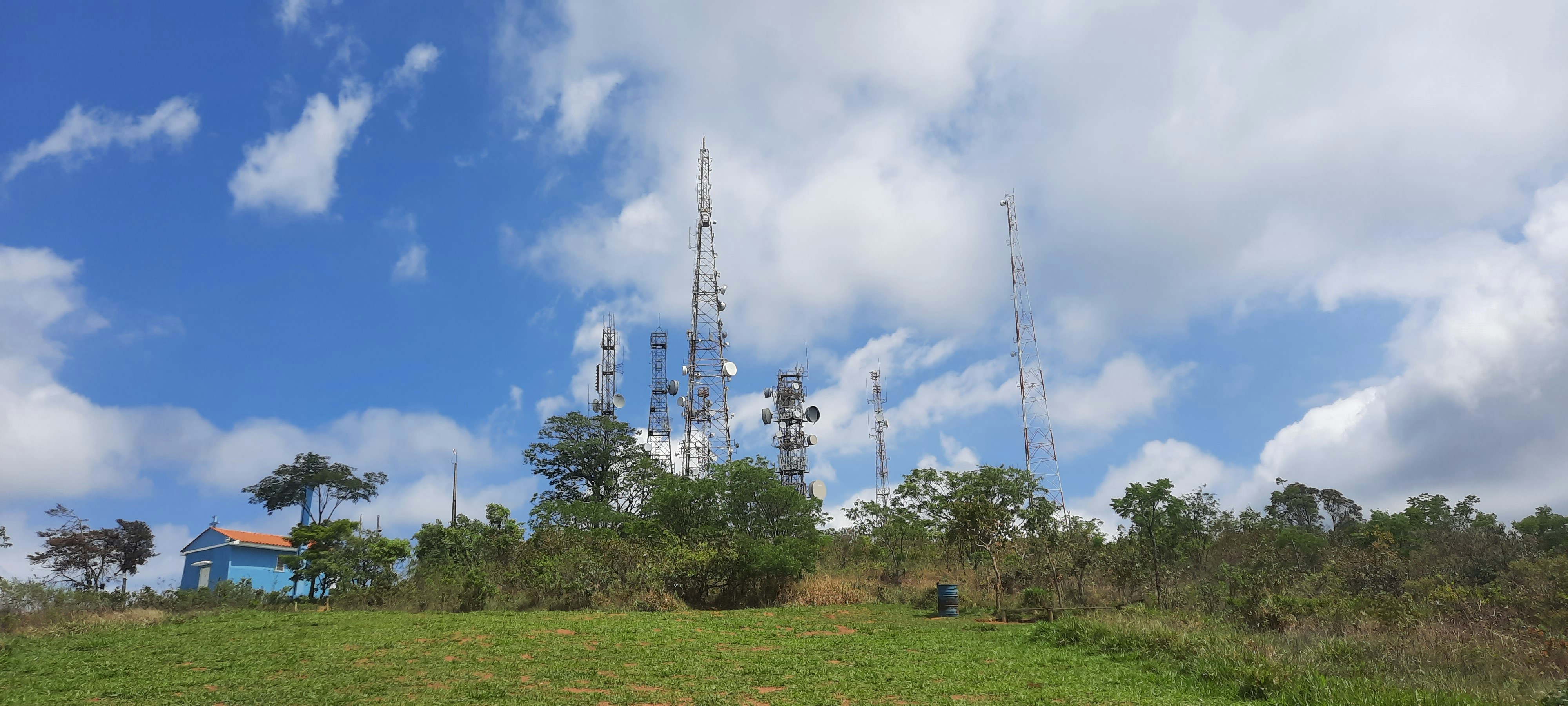On January 6, 2025, Bharti Airtel and Vodafone Idea announced the sale of their entire stake in Firefly Networks to ibus Network and Infrastructure. This decision follows a thorough strategic review of their joint venture with Firefly Networks, marking a pivotal shift in their business focus. The sale allows both companies to streamline their operational structures and prioritize their core telecommunications businesses. By divesting from Firefly Networks, Airtel and Vodafone Idea aim to optimize resources and strengthen their primary market presence, signaling a refocused approach to future growth and business operations.
On January 6, 2025, a significant development unfolded in the telecommunications sector as Bharti Airtel and Vodafone Idea announced their decision to sell their entire stake in Firefly Networks to ibus Network and Infrastructure. This sale marks the culmination of a strategic review by both companies regarding their joint venture, which has existed as a cooperative effort between Airtel and Vodafone Idea for some time. By divesting from Firefly Networks, Airtel and Vodafone Idea aim to streamline their operational structures and focus more on their core businesses.
The agreement, which was officially announced on the date mentioned, underscores the mutual decision by the two major players in the telecommunications industry to part ways with their equal stake in Firefly Networks. The deal is valued at Rs 45 million, reflecting the ongoing shifts within the telecom market and the need for companies like Bharti Airtel and Vodafone Idea to adjust to the rapidly changing landscape. By selling their shares to ibus, both companies are expected to enhance their financial positions while also allowing ibus to potentially expand its influence in the telecommunications domain.
Key stakeholders involved in this transaction include the leadership teams from Bharti Airtel and Vodafone Idea, who recognized the necessity of adapting to market dynamics. This sale not only affects the operational frameworks of both companies but also has broader implications for the competitive landscape of the telecommunications industry. As Airtel and Vodafone Idea shift focus towards optimizing their respective core services and product offerings, the acquisition of Firefly Networks by ibus may introduce new innovations and opportunities for growth in this sector.
Financial Implications for Airtel and Vodafone Idea
The recent divestment of Firefly Networks by both Airtel and Vodafone Idea has introduced notable financial implications for these telecom giants. This strategic move, involving the sale of their complete stakes in Firefly Networks to ibus, has led to various considerations regarding their overall financial performance and market positioning. Firefly Networks previously contributed a significant portion to the consolidated turnover and net worth of both companies, helping to bolster their standing in a highly competitive market. In FY24, the financial reports indicated that Firefly Networks accounted for approximately 12% of Airtel’s consolidated turnover and around 10% for Vodafone Idea.
This reduction in revenue from the sale undeniably warrants scrutiny, particularly in light of the ongoing challenges faced by Vodafone Idea and Bharti Airtel. As the market constantly evolves, the telecommunications firms are pressured to optimize their portfolios for better financial health. The decision to sell Firefly Networks reflects a larger strategic direction aimed at improving liquidity, especially for Vodafone Idea, which has been grappling with mounting debts. Ramping up cost efficiency and focusing capital on core operations may yield dividends in the long run, despite the immediate financial impact of the sale.
Moreover, the sale is aligned with the broader market dynamics, where both Airtel and Vodafone Idea are exploring investments in areas that promise higher returns. The evolving competitive landscape necessitates that these companies focus on assets and services that will enhance growth. While the Vodafone Idea share price might initially react to the announcement, investors could ultimately view this move positively as a step toward stabilizing finances and streamlining operations. Similarly, Airtel’s shares may reflect confidence among investors in the company’s strategic direction by realigning its asset base. Hence, the decision to divest from Firefly Networks ultimately underscores a critical phase in both Airtel and Vodafone Idea’s broader business strategies.
Firefly Networks: Operations and Impact
Firefly Networks operates as a prominent Wi-Fi service provider in India, specializing in the deployment and management of Wi-Fi hotspots in diverse public and private spaces. The company’s business model hinges on strategic partnerships with various institutions, including hospitals, educational facilities, and commercial establishments. By fostering these collaborations, Firefly Networks effectively enhances internet accessibility in urban areas, thus contributing to the overall improvement of the digital ecosystem.
The selection of locations for Firefly’s Wi-Fi hotspots is meticulously planned, reflecting the company’s aim to cater to high-density areas where demand for internet connectivity is substantial. Through the establishment of these hotspots, Firefly Networks not only fulfills the need for reliable internet access but also creates monetization opportunities. By collaborating with institutions, Firefly can offer free or subsidized internet services to end-users, financed through advertising or subscription models. This approach significantly impacts user engagement and provides an additional revenue stream for partner institutions, thereby benefiting all stakeholders involved.
Moreover, Firefly Networks has played a crucial role in bridging the digital divide in India, particularly in urban environments where access to affordable internet remains a challenge. As the telecommunications landscape in India continues to evolve, the recent acquisition of Firefly Networks by ibus raises pertinent questions about future developments. With the backing of ibus, there is potential for enhanced technological innovation and increased investment in infrastructure, which may further amplify Firefly’s operational capabilities. This could result in an expanded network of hotspots and improved service offerings, ultimately benefiting users and contributing to the digital growth of cities.
The Future of Wi-Fi Infrastructure in India
The recent decision by Bharti Airtel and Vodafone Idea to sell their entire stake in Firefly Networks to ibus has significant implications for the future of Wi-Fi infrastructure in India. This transaction highlights the evolving landscape of telecommunications in the country, where private companies are increasingly stepping in to enhance connectivity. The role of ibus in this context could be pivotal, especially as demand for reliable and high-speed internet services continues to grow across urban and rural regions.
India’s push for digitalization has heightened the need for robust Wi-Fi networks capable of supporting a myriad of applications, from telecommuting and online education to smart city initiatives. With major telecom players like Vodafone Idea and Airtel focusing more on core telecommunications functions, the entrance of focused entities like ibus into the Wi-Fi space may lead to optimized service delivery and innovation in Wi-Fi technology. This could accelerate the deployment of advanced infrastructure that is crucial for achieving the goals set out in the National Digital Communications Policy.
The competitive landscape may also experience a shift post-acquisition, as ibus expands its operations and potentially collaborates with other technology providers. Such collaborations could fuel innovative Wi-Fi service offerings that appeal to both consumers and businesses. This trend aligns with the global move towards enhancing broadband access and quality, thereby putting pressure on existing telecommunications companies to invest in Wi-Fi infrastructure enhancements. Moreover, the acquisition implies that future joint ventures might emerge while existing companies may be compelled to reevaluate their strategies in response to these market dynamics.
As this development unfolds, market watchers will keenly observe how the dynamics between traditional telecom giants like Bharti Airtel and Vodafone Idea, and nimble players like ibus evolve, potentially redefining the Wi-Fi service paradigm in India.
Stay updated with the latest news from the telecom sector by following our channel, Tech News. Don’t forget to connect with us on Twitter, and Facebook for real-time updates and insights.




